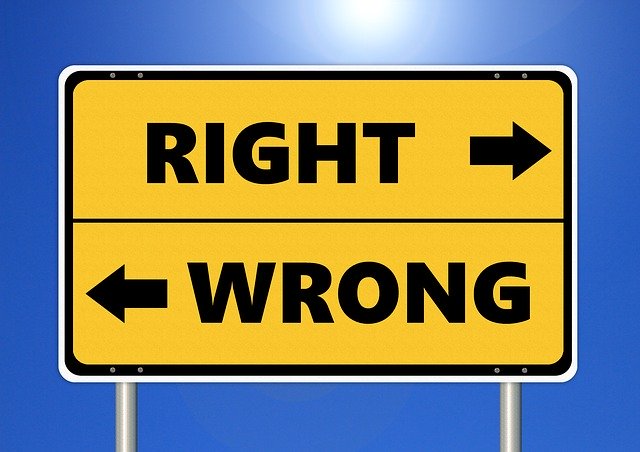 Corporate boards believe a company code of conduct helps prevent employee misbehavior and safeguard the organization’s reputation. PR and corporate communications professionals agree: By curtailing illegal and unethical actions, the company can avoid reputation-damaging PR crises.
Corporate boards believe a company code of conduct helps prevent employee misbehavior and safeguard the organization’s reputation. PR and corporate communications professionals agree: By curtailing illegal and unethical actions, the company can avoid reputation-damaging PR crises.
However, subtle nuances in language can sabotage a company’s code of conduct, reveals new research from the Kellogg School of Management at Northwestern University. Some codes of conduct use warm, communal language, as in: “We always put customers first.” Others use more formal language: “Employees always put customers first.”
Companies with communal words, like “we” and “us,” suffer more employee rule breaking – and thus more PR crisis and negative media coverage, according to the research findings. Researchers theorize employees feel they’ll suffer less punishment. When language is communal, the organization is viewed as forgiving and tolerant.
Research participants read one type of code of conduct or didn’t read any code, then performed various tasks to measure their honesty. They were told to self-report results and that their work would not be checked. Those who read communal-worded codes were more likely to report untruthful results, for instance that they had solved math problems that were actually unsolvable.
Lighter Penalties Expected
Participants said they expected companies with formal language to deliver harsher punishments for mistakes and those with communal language to be more lenient. Researchers wondered if communal language makes people feel more loyal to the organization and more willing to report dishonest results to help the group. Testing did not support that theory.
A review of news articles on corporate misbehavior found that employees at companies with “we” language were more likely to act unethically.
Companies don’t need to ax communal pronouns. Instead, be sure to cover enforcement and the consequences of illegal and unethical behavior in company policies, the researchers recommend. Make it clear that violations will be punished and follow through with those penalties.
Corporate management experts generally agree that codes of conduct, also called ethics policies or value statements, help guide employee behavior. A study published in the Journal of Business Ethics revealed that professionals at PR firms with ethical policies were significantly more likely to engage in ethical practices. The guidelines are especially valuable for younger employees who may lack the training and work experiences of more senior colleagues.
Focus on the Corporate Culture to Promote Ethical Behavior
However, encouraging ethical behavior requires more than a policy. Companies can create value statements that hold employees to the highest standards and then promote a toxic corporate culture that pressures descent people to commit crimes, says Ron Carucci, co-founder and managing partner at Navalent, in a Harvard Business Journal article. That was the case at Wells Fargo bank where unreachable sales quotas induced some employees to create phony client accounts.
Shortcomings in corporate culture can cause misconduct in a number of ways.
Fear of speaking up. Review the organization’s whistle-blower programs to ensure employees can speak up without fear of retribution.
Pressure to reach unrealistic goals. Illustrated by the Wells Fargo example.
A sense of unfairness. Large financial awards to executives combined with scant resources and compensation for lower level employees can create a sense of injustice that motivates workers to sabotage the organization.
Lack of good examples. Leaders set examples for employees and are held to higher standards. They must consider how others may misinterpret their actions.
“Organizations who don’t want to find themselves on a front-page scandal must scrutinize their actions to far greater degrees than they may have realized,” Carucci writes. “In an age of corporate mistrust, creating ethical workplaces takes more than compliance programs.”
Bottom Line: Company ethics policies, a key tool for guiding employee behavior and avoiding reputation-damaging PR mishaps, can flop if not properly worded. Even subtle language differences can change employee behavior.
Download the PR Crisis Handbook, a comprehensive guide on preventing and managing PR crises
William J. Comcowich founded and served as CEO of CyberAlert LLC, the predecessor of Glean.info. He is currently serving as Interim CEO and member of the Board of Directors. Glean.info provides customized media monitoring, media measurement and analytics solutions across all types of traditional and social media.





Of course, as many people in ours and other businesses know and may have witnessed, company policy manuels spelling out codes of conduct are often ignored when a “rainmaker,” corporate officer or a pal of a high-ranking corporate officer is involved. If the wrong doing is done by a high corporate officer the initial response of a company is frequnetly to sweep it under the rug. But if the wrong doing is done by Jane or Joe Anybody, examples might be made. Mr. Comcowich, as you wrote the wording of codes of conduct can determine employee’s behavior, but in order for employees to take them seriously, the words must be backed up by corporate action, unlike what we have seen for more than a year at Boeing, Wells Fargo, Major League Baseball, and for many decades the National Football League.